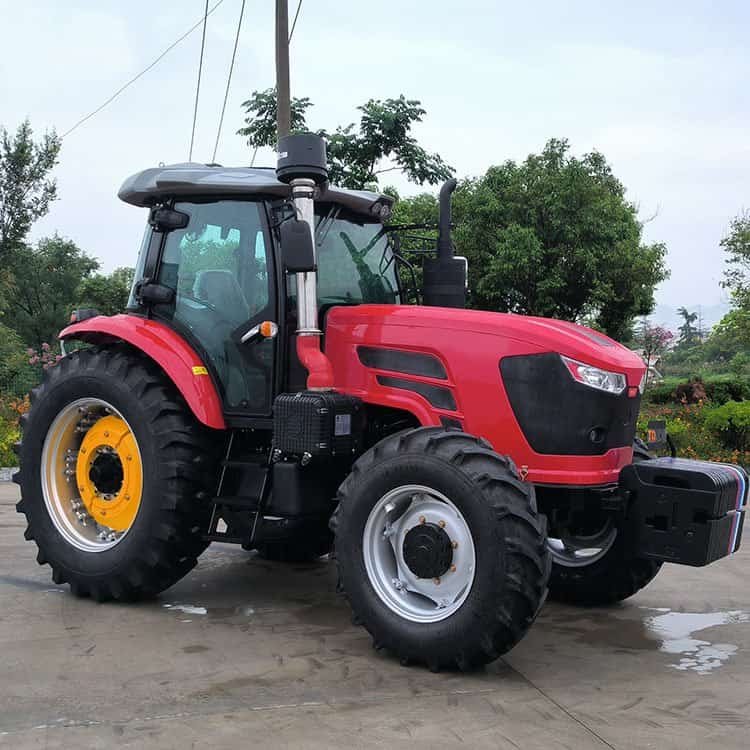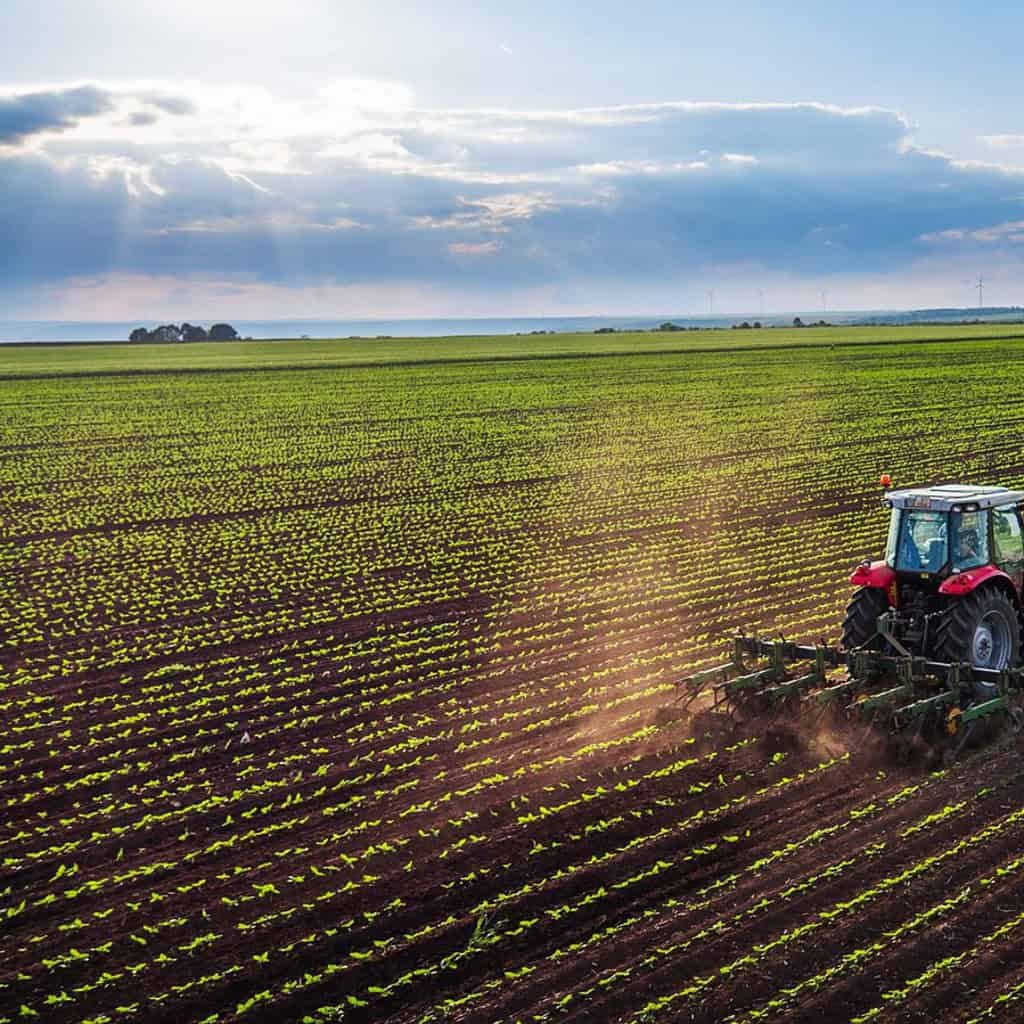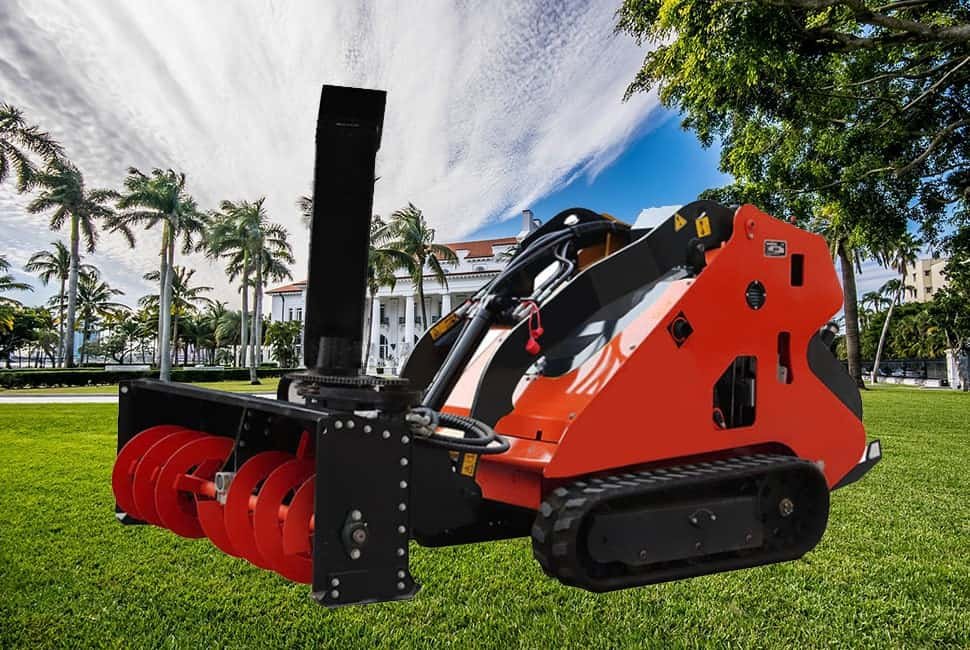In the world of agriculture, selecting the right equipment is crucial for enhancing efficiency and productivity. Farmers face the daunting task of choosing between various types of equipment, particularly when it comes to tractors and other farm machinery. This article aims to explore the differences between tractors and other farm equipment, assisting farmers in making informed decisions tailored to their specific needs.
Advantages and Disadvantages of Tractors
While tractors offer numerous advantages, they also come with their own set of drawbacks. Understanding both sides of the equation is essential for you as a farmer considering an investment in machinery.
Advantages:
1. Multifunctionality
Tractors are designed to perform a wide range of functions, from plowing and tilling to planting and harvesting. This multifunctionality allows you to complete various tasks with a single piece of equipment, saving you both time and labor costs. For instance, by equipping your tractor with a plow, you can effectively turn over the soil in preparation for planting. The same tractor can then be fitted with a harvester attachment for collecting your crops. This adaptability enables you to respond quickly to different agricultural needs as they arise.
2. Power and Efficiency
The powerful engines of tractors allow you to handle heavy loads and navigate challenging terrains. This strength is particularly beneficial for tasks that require significant force, such as plowing dense soil or transporting heavy materials. The efficiency of tractors not only speeds up your work but also enhances productivity, making them a vital investment for your farm.
3. Wide Range of Attachments
Tractors can be equipped with various attachments, further increasing their functionality. These include seeders, cultivators, and mowers, among others. This versatility means you can customize your tractor to suit specific tasks, significantly improving your operational flexibility. For example, you can seamlessly transition from sowing seeds to mowing hay with the right attachments, maximizing your efficiency.
Disadvantages:
1. Maintenance Costs
Costs While tractors are an invaluable asset, they can be expensive to maintain, especially if they require specialized parts or services. Regular servicing can add to your overall costs, so you must budget for these expenses to avoid financial strain.

2. Complexity
Operating a tractor often requires training and experience. If you’re less experienced, this complexity could pose a challenge. Without adequate knowledge, you run the risk of damaging the equipment or compromising safety, which could lead to costly repairs or accidents.
3. Initial Investment
The upfront cost of purchasing a tractor can be significant, and this investment may not always yield immediate returns. It’s crucial for you to carefully assess your financial situation and projected return on investment (ROI) before making such a commitment.
While tractors are often regarded as the go-to equipment for farming, other specialized machines also play a crucial role in your agricultural operations. Here are some advantages of using these specialized tools:
1. Specialization
Equipment such as seeders and tillers is designed for specific tasks, allowing these machines to excel in their intended functions. For instance, a seeder can plant seeds at precise intervals and depths, ensuring optimal growth conditions. This type of precision is especially important for crops that require careful planting techniques, helping you achieve better results.
2. Efficiency
Specialized equipment is often more efficient at performing its specific task compared to a general-purpose tractor. For example, a dedicated tiller can prepare soil more effectively than a tractor with a tilling attachment. This increased efficiency can translate into better crop yields and reduced operational costs over time. Additionally, the time you save by using specialized machines can be reallocated to other important farming tasks, further enhancing your overall productivity.
- Lower Maintenance Costs
Specialized machines may incur lower maintenance costs compared to tractors, primarily due to their simpler designs and fewer moving parts. This can be particularly advantageous for you if you run a smaller farm with a limited budget. The simplicity of these machines often makes them easier to repair and service, which can further reduce your long-term costs.
By considering the advantages of specialized farm equipment, you can make informed decisions that enhance the efficiency and productivity of your farming operations.
What is the Most Used Equipment on a Farm?
As a farmer, you utilize a variety of equipment to manage your operations effectively. While tractors are among the most recognized pieces, several other machines also play crucial roles in your day-to-day activities.
1. Tractors
As mentioned earlier, tractors are versatile machines capable of performing multiple tasks. Their widespread use makes them a staple on most farms, enabling you to tackle various farm chores efficiently.
2. Plows
Plows are essential for preparing your fields for planting. They turn over the soil, allowing for aeration and nutrient incorporation. Many farms, including yours, often use tractors in tandem with plows to maximize efficiency during this critical stage of land preparation.
3. Harvesters
Harvesters are specialized machines designed for collecting crops. Depending on the type of crop you’re growing, different harvesters may be employed, each tailored to optimize efficiency and reduce waste during the harvesting process.
4. Seeders
Seeders play a crucial role in ensuring that your seeds are planted correctly and at the right depth. This precision can significantly influence your crop yields and overall productivity.
5. Cultivators
Cultivators are used to till the soil after planting, helping to control weeds and promote healthy plant growth, which is vital for maintaining your crops.
In conclusion, while tractors are among the most utilized pieces of equipment on your farm, their effectiveness is often enhanced through the use of specialized machines tailored for specific agricultural tasks.
How to Choose Based on Needs?
When deciding between tractors and other farm equipment, you should consider several key factors.
1. Type of Crops
The type of crops you cultivate is perhaps the most fundamental factor influencing your choice of farm equipment. Different crops demand distinct planting, maintenance, and harvesting techniques. For example, root vegetables like carrots and potatoes require specialized tilling machinery that can loosen the soil and lift the harvest without damaging the produce. In contrast, row crops such as corn or soybeans benefit substantially from precise seeders that can plant seeds at specific depths and spacing to optimize growth and yield. Therefore, conduct a thorough analysis of the crops you plan to grow—consulting agricultural extension services or fellow farmers can help you determine the right machinery to meet your production needs.
2. Land Characteristics
The type of terrain and soil quality on your farm can also influence your equipment choices. If you’re working with rocky or uneven terrain, you might prioritize equipment with robust capabilities for navigating these challenges. Factors like soil composition and drainage can significantly affect the efficacy of certain machinery. For instance, farmers like you operating on rugged landscapes may want to invest in tractors or tillers designed for durability and better maneuverability, enabling you to reduce downtime from breakdowns and enhance productivity.
3. Budget
Financial considerations are always crucial. While tractors offer great versatility, you must weigh the initial investment and ongoing maintenance costs against the benefits they provide. The upfront cost of purchasing equipment is just one aspect; you must also account for ongoing expenses like maintenance, fuel, and operation costs. Consider the anticipated return on investment (ROI), analyzing how the efficiency and effectiveness of new equipment might positively impact your yield and save labor over time. Creating a detailed budget that encompasses all potential costs can help ensure the sustainability of your farming operation.
4. Operational Efficiency
Operational efficiency is another critical factor in your decision-making process. Each piece of equipment has its strengths and weaknesses for specific tasks. Take into account factors like speed, labor requirements, fuel consumption, and compatibility with your existing farming practices. Engaging in dialogue with other farmers and equipment dealers can provide valuable insights into the performance of various machinery in similar contexts, aiding you in making informed decisions.
- Future Growth
Planning for future growth is essential if you aim to scale your operations. Versatile equipment—like a reliable tractor—can be a long-term investment that offers flexibility for various farming tasks, from routine maintenance to specialized work needed for expanded crops or additional acreage. Consider potential changes in your crop production plans or land acquisitions that may necessitate additional equipment. Investing in machinery that can adapt to changing agricultural practices can ultimately lead to better returns.
By carefully evaluating these factors, you can make informed equipment choices that enhance your farming operations and contribute to your long-term success.
Useful Life of a Farm Tractor
Understanding the useful life of a farm tractor is vital when you’re contemplating this significant investment.
1. Average Lifespan
On average, a well-maintained farm tractor can last between 15 to 25 years. However, this lifespan can vary based on your usage patterns, maintenance practices, and the quality of the equipment you choose.
2. Factors Influencing Lifespan
- Maintenance
Regular upkeep, including oil changes, tire rotations, and system checks, plays a crucial role in extending your tractor’s useful life. Proper maintenance ensures that your machinery operates efficiently and prevents costly breakdowns.
- Usage
The intensity and frequency of your tractor’s use can dramatically affect its longevity. A tractor used heavily in demanding conditions may require more frequent repairs than one that is used sporadically
- Storage Conditions
Proper storage techniques, such as keeping your tractor indoors or covered, protect it from environmental elements that can lead to rust, corrosion, and other forms of deterioration.
3. Maintenance Tips
To maximize a tractor’s lifespan, farmers should follow these maintenance tips:
- Conduct regular inspections to identify wear and tear.
- Keep the engine and hydraulic systems clean and well-lubricated.
- Store your tractors indoors or under protective coverings to shield them from the elements.
Summary and Recommendations
In summary, the choice between tractors and other farm equipment is a multifaceted decision that depends on various factors, including your specific farming needs, budget, and long-term goals. To make the most informed choice, carefully evaluate your operational requirements. Consider both the advantages and disadvantages of tractors, as well as the roles of specialized equipment. By taking these factors into account, you can select the best machinery to enhance your agricultural efficiency and productivity. Ultimately, whether you choose a versatile tractor or specialized machinery, the right choice can lead to better crop yields, increased efficiency, and a more successful farming operation.
Final Thoughts
As the agricultural landscape continues to evolve, it’s crucial for you to stay informed about the latest advancements in machinery and equipment. By prioritizing education and adaptability, you’ll be better positioned to navigate the challenges of modern farming. Embracing technology and innovative practices can lead to enhanced productivity, sustainability, and overall success in your field.By understanding the intricacies of tractors and other farm equipment, you can make informed choices that align with your operational goals and long-term vision. The right equipment not only supports your daily tasks but also plays a significant role in shaping the future of agricultural practices.


